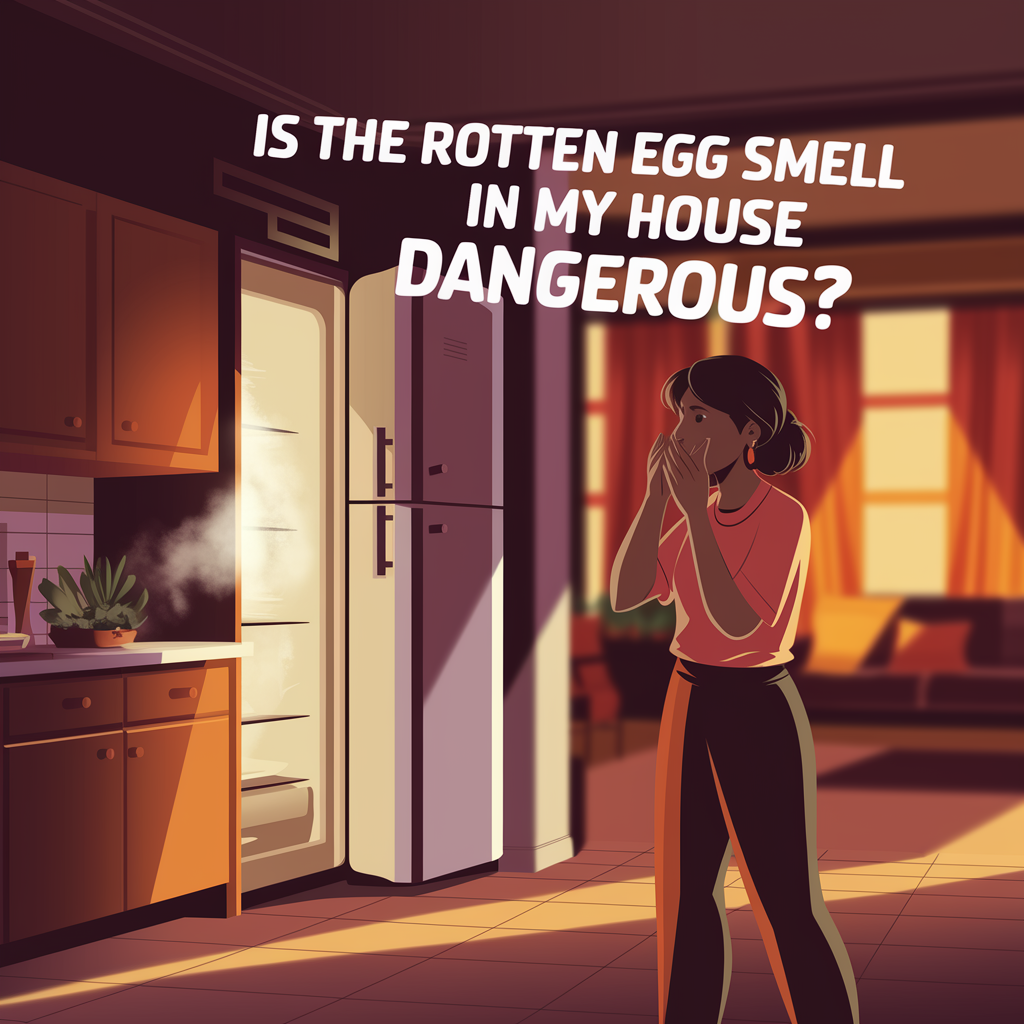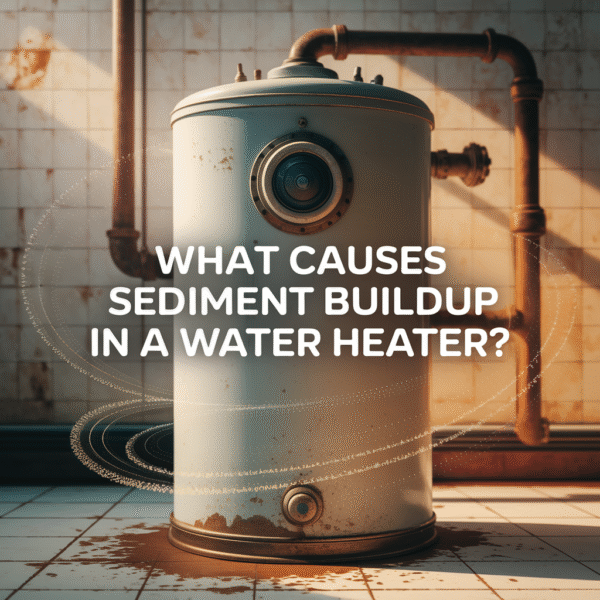
Why Does My House Smell Like Rotten Eggs? Causes and Solutions
It’s one of the most alarming smells to hit your nose at home — that unmistakable rotten egg odor. I’ve experienced it myself, and if you’re here reading this, you’re probably dealing with it too. It’s not just unpleasant… it could be dangerous. Let’s walk through what causes this awful smell, what it means, and exactly how to fix it.
That Rotten Egg Smell? It’s Usually Sulfur
What most people call a “rotten egg” smell in a house is often due to hydrogen sulfide gas (H₂S). This gas is a natural byproduct of bacteria breaking down organic material, and it smells just like sulfur or rotten eggs. It can come from plumbing, water sources, or even dangerous gas leaks.
But not all smells are created equal — and some are far more serious than others.
👉 Want a quick DIY fix to a common cause of this smell? Check out this helpful guide to stop rotten egg smells fast 💡
Could It Be a Natural Gas Leak?
Let’s start with the most urgent cause. Utility companies add a chemical called mercaptan to natural gas, which normally has no odor. Mercaptan smells exactly like rotten eggs, so if you smell that scent coming from anywhere near your furnace, stove, water heater, or gas lines, get out immediately and call your gas company.
This is not the time for DIY.
If you suspect a leak, shut off the gas supply if it’s safe, and do not use electrical switches, phones, or anything that might cause a spark.
👉 This article breaks down the risks and symptoms of CO poisoning from gas appliances:
The deadly gas you can’t see, smell, or taste
Water Smelling Like Sulfur? Here’s What’s Happening
Ever turned on the hot water and caught a whiff of that sulfuric funk? You’re not alone. The problem might be lurking in your water heater.
Older water heaters, especially ones with magnesium or aluminum anode rods, can encourage bacteria that release hydrogen sulfide into your hot water.
What I did to fix this:
- Flushed my water heater thoroughly.
- Replaced the anode rod with a powered anode rod — no more bacteria parties.
- Installed a whole-house filter to treat the well water.
This made a world of difference.
👉 More info here: How to identify and fix that smell
Is It Coming From the Bathroom or Sink?
Another place I kept running into the smell? Bathroom drains. If you smell it strongest when water is running — especially warm water — check the sink or tub drain. Dry P-traps and bacterial buildup in the pipes are common culprits.
Simple fix I used:
- Pour hot water down the drain.
- Then follow with a cup of baking soda and a cup of vinegar.
- Let it fizz for 10 minutes, then rinse with hot water.
You’d be shocked how fast that cleared up the odor.
👉 Check out these helpful tips to dissolve stubborn gunk:
What will dissolve hair in a drain?
Check the Garage or Utility Room
If the smell is near your garage or utility area, you might have appliances that are backdrafting or not venting properly. This can lead to a dangerous buildup of combustion gases like carbon monoxide, which sometimes comes with a sulfur-like smell.
And if you’re running a gas-powered tool, generator, or even warming up your car in the garage? You’re adding to the problem.
👉 This guide shows how even snow can cause this issue:
🌨️ Winter Warning: Prevent Carbon Monoxide Danger by Clearing Snow
Does It Smell Worse in the Laundry Room?
If your laundry room smells like rotten eggs, you might be dealing with a clogged dryer vent, stagnant water in the drain line, or even mold growth.
I fixed this by:
- Cleaning out the entire vent line (you’d be amazed at the gunk that came out)
- Pouring a disinfectant solution down the washer drain
- Adding a vent filter to improve air quality
👉 Don’t miss this step-by-step DIY to improve your air at home:
💨 Activated carbon air vent filters for dust and odor control
That Smell Near the Toilet Might Not Be What You Think
Yeah, sometimes it’s just… well… the usual business. But if the smell lingers even after a thorough cleaning, you may have urine trapped under the toilet seat, around the floor, or in tile grout.
I had to reseal the toilet base and use this one little trick to clear the smell for good.
👉 This quick DIY tip saved my bathroom:
🚽 No more odors: Remove that urine smell for good
You Might Have Sewer Gas Leaking In
If the smell is strong near floor drains, unused showers, or basement areas, there’s a chance sewer gas is making its way inside your home. That can contain methane, ammonia, and — yep — hydrogen sulfide.
Here’s what I did:
- Made sure all P-traps had water (a dry trap = open door for gas)
- Replaced cracked seals around toilet bases
- Sealed unused drains with rubber stoppers
This took care of the weird basement smell I couldn’t figure out for months.
Don’t Forget the Obvious: Your Trash or Disposal
Okay, this one’s obvious, but it fooled me once. I had cleaned everything in the kitchen but missed a bit of old food stuck in the garbage disposal. That alone gave off a powerful sulfur smell.
Fix: Toss a few ice cubes and lemon rinds down the disposal and run it. Then chase with baking soda + vinegar. Boom. Fresh again.
Still Can’t Find It? Try This Whole-Home Trick
I always recommend this trick: walk the house with fresh air blowing and your nose turned detective. Start by:
- Opening windows for cross-ventilation
- Turning on all vents
- Closing doors to isolate rooms and pinpoint the source
Once you locate the smell’s origin, refer back to the above sections and knock it out fast.
👉 These extra homeowner hacks might help too:
🛠️ 22 Easy DIY Home Tricks Every Homeowner Should Know
Need More Help? Start With This One Important Guide
If you’ve made it this far and still haven’t figured it out, go read this deep-dive:
🔥 The Deadly Gas You Can’t See, Smell, or Taste — it’ll open your eyes to how silent and serious these smells can be.
Final Smell-Fighting Tool: A DIY Checklist You Can Use Now
Here’s a real-world, actionable checklist I go through when that rotten-egg odor pops up. You can copy this for yourself and check each step off as you go:
- Scan all gas-powered appliances and vents for obvious leaks or unusual smells
- Ensure bathroom floor traps (under showers or unused sinks) aren’t empty
- Clean around toilet base and check for gasket cracks or stains
- Run cleaning cycles for garbage disposal using lemon and baking soda
- Flush the water heater, replace anode if needed, and ventilate the tank
- Inspect your dryer vent for lint buildup or clogged exhaust terminals
- Pour warm water and vinegar down floor drains and sinks in musty rooms
- Test P-traps by pouring water in them manually—you may not be using them often enough
- Walk your house with fresh air flowing and pinpoint which section the smell is strongest in
- If you suspect gas, evacuate immediately and contact your utility provider or 911, especially if you suspect a leak
If you’ve run through this list and are still stuck, it may be time to bring in a plumber, HVAC tech, or gas professional who can run proper testing. You’re not alone—and you don’t need to live with that lingering odor.
Why You Can’t Ignore That Smell Anymore
A “rotten egg” scent in your house is more than just a stench—it’s a symptom. Whether it’s from bacteria in your hot water, a sewer gas backup, or, worst of all, a natural gas leak—it’s never “just something you learn to live with.” The cost of ignoring it isn’t just poor indoor air—it’s potential health risks, moisture damage, or even explosion hazards.
When I tackled the smell in my own house, I learned a few valuable lessons:
- Visibility doesn’t equal safety — The image of gas and smoke may come in Hollywood, but reality is silent and invisible.
- Maintenance matters — Routine checks keep odors away and systems running efficiently.
- DIY goes far, but don’t hesitate to call pros — When safety’s at stake, expertise and tools matter.
Take charge of your home air quality. If that odor ever returns, use the tools from this post—and feel free to loop me in if you’d like personalized guidance.
As an Amazon Associate we earn from qualifying purchases through some links in our articles.



